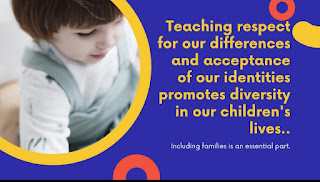Establishing positive relationships with children
All people can point to adults who influenced and brought joy (or sorrow) to their lives as children. We remember that person who connected with us by giving us some advice, a toy, playing games, or satisfying our needs, emotionally and physically, accepting and respecting who we were just to make us happy. This interaction was the preamble to a healthy relationship between that adult and that child. Later in life bring we the opportunity to seek that support in situations that we all face in our lives because they became trustworthy persons for us. Unfortunately, not for all children, these relationships occur in this way.
Why are healthy relationships with adults important?
Findings in research reassure parents and caregivers that what children really need is a secure and positive relationship with adults who take care of them. That experience increases the ability of children to learn and molds them as productive adults in the future. Learning starts with the connections in neurons that are shaped by positive interaction with supportive and responsive adults. These findings are based on multidimensional work involving economics, neurobiology, developmental psychology, and public policy. Positive early experiences shape the brain's architecture resulting in invaluable benefits that last forever in adults' behavior and learning.
As I explained earlier, unfortunately, on the other hand, children who suffer abuse and neglect, whose parents and caregivers use drugs, and alcohol, or who suffer depression, or who attend poor-quality early childhood programs do not develop the brain effectively as stable children. Those children require remedial help in school, public assistance, and deal with unemployment, or jail time as adults.
We can promote healthy relationships between adults and children
Discipline them with love.
Play fair for them.
Set boundaries to help them control their behavior.
Respect their interests as they grow.
Remember children are children and not small adults.
Be the figure to support their emotional and physical development healthily.
Celebrate their little efforts to do things right.
Encourage them with kind words to behave appropriately.
Listen to their complaints, fears, and anxieties.
Respond positively and calmly in difficult situations.
Surround yourself with other adults (family and friends) that encourage you.
There are a lot more healthy ways we can contribute to the child's appropriate development, growth, and learning. Besides, it's up to all of us, parents, caregivers, teachers, administrators, and other adults who are related to children to do our best part.
Reference
Center on the Developing Child at Harvard University. (2017). Three Early Childhood Development Principles to Improve Child Outcomes. https://developingchild.harvard.edu/resources/three-early-childhood-development-principles-improve-child-family-outcomes/
"A CHILD'S LIFE IS LIKE A PIECE OF PAPER ON WHICH EVERY PERSON LEAVES A MARK."
-Robert Heinlein
_______________________
Diana A. Rivera is an Early Childhood Educator, with graduate studies in Educational Psychologist, and author of Be the voice for children. Diana believes and commits to the healthy development, growth, well-being, and learning of all children. The blog posts share ideas and knowledge about educational psychology, child and brain development, parenting, diversity, effective teaching practices, early childhood education, and care to support the empowerment of children and families.










